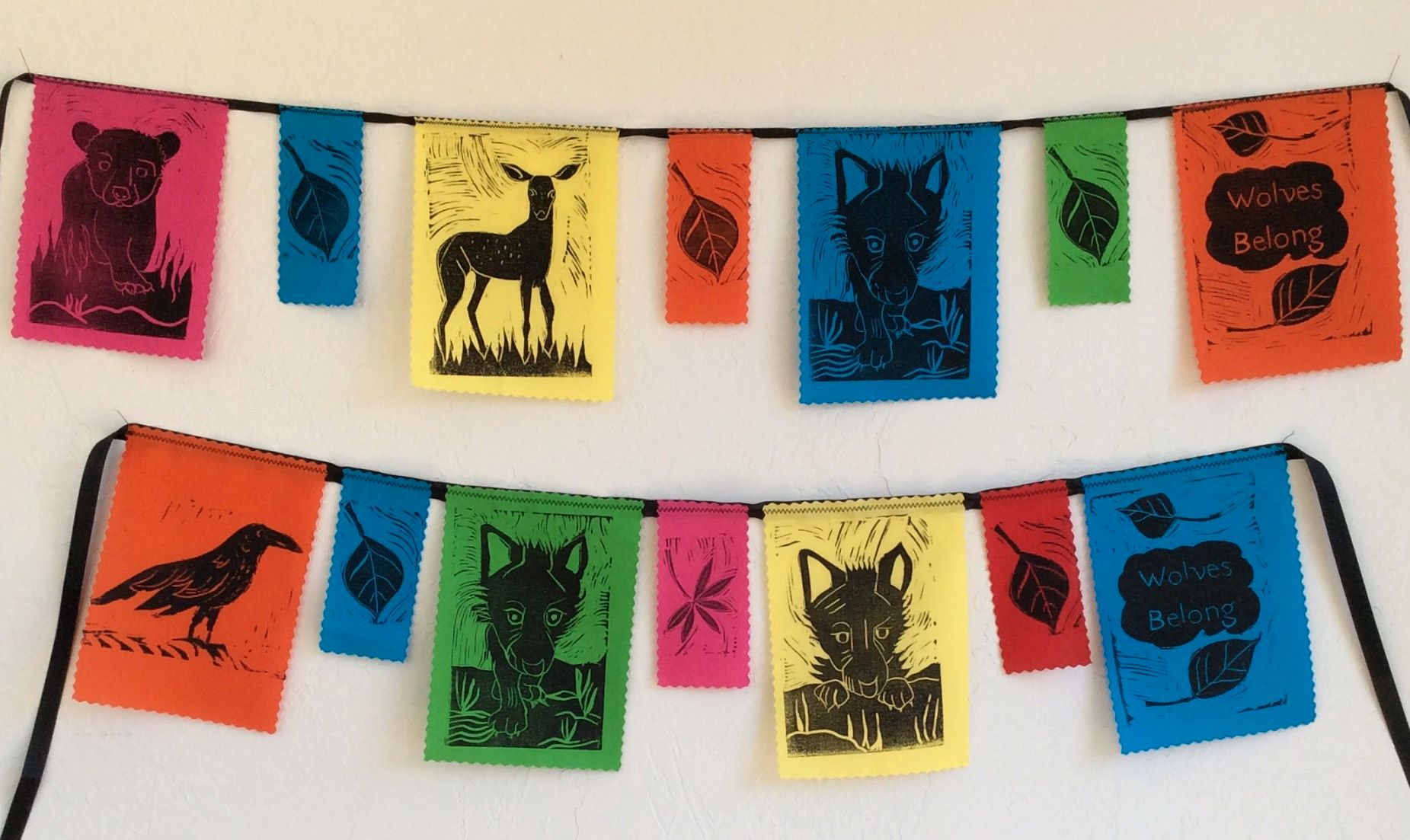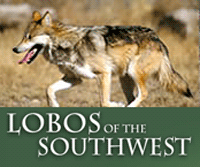For Immediate Release June 25, 2025
Contacts:
Claire Musser, Grand Canyon Wolf Recovery Project, 928-202-1325, This email address is being protected from spambots. You need JavaScript enabled to view it.
Erin Hunt, Lobos of the Southwest, 928-421-0187, This email address is being protected from spambots. You need JavaScript enabled to view it.
Sandy Bahr, Sierra Club - Grand Canyon Chapter, 602-999-5790, This email address is being protected from spambots. You need JavaScript enabled to view it.
Nico Lorenzen, Wild Arizona, 520-289-0147, This email address is being protected from spambots. You need JavaScript enabled to view it.
Leia Barnett, WildEarth Guardians, 970-406-2125, This email address is being protected from spambots. You need JavaScript enabled to view it.
Michael Robinson, Center for Biological Diversity, 575-313-7017, This email address is being protected from spambots. You need JavaScript enabled to view it.
Mary Katherine Ray, Sierra Club - Rio Grande Chapter, 575-537-1095, This email address is being protected from spambots. You need JavaScript enabled to view it.
Regan Downey, Wolf Conservation Center, 914-763-2373, This email address is being protected from spambots. You need JavaScript enabled to view it.
STUDENTS NAME MEXICAN GRAY WOLF PUPS SLATED FOR RELEASE
Entire Family of Wandering Wolf “Asha” To Be Freed Together in New Mexico
Albuquerque, NM – Mexican gray wolf puppies born in captivity at Sevilleta National Wildlife Refuge received names this week from student submissions via an online contest. The five puppies– Kachina, Aspen, Sage, Kai, and Aala– and their parents Asha and Arcadia are slated to be released in New Mexico.
Asha made headlines in 2023 when she twice ventured north of Interstate 40, the official boundary beyond which Mexican wolves are banned. After her second capture near the Valles Caldera National Preserve, she was paired in captivity with a male named Arcadia, and officials pledged to release them after pups were born. Conservationists are calling the new family the Caldera Pack and hope that their release will add genetic diversity to the genetically imperiled wild population.
The students who named these pups explained the meanings behind their proposals. Kachina (Kweo Kachina) is the name of the Hopi wolf spirit. Aspen highlights that Mexican gray wolves and Aspen trees are both unique and at risk. Sage means wise to show wolves' intelligence and is also calming to show wolves aren't vicious. Kai means willow tree in the Diné language. Aala means “she who hunts and heals” because wolves do hunt but also heal their surroundings.
The names were drawn from ideas submitted by K-12 students from New Mexico, Arizona and elsewhere.
“Each Mexican gray wolf is a unique sentient being with hopes and dreams of their own,” said Erin Hunt, managing director of Lobos of the Southwest. “Students share their passion for wildlife conservation and their own hopes for the future of wild lobos by submitting name ideas that help people make a personal connection with these rare southwestern native wolves. Thank you to all the students who have helped honor Asha and Arcadia’s pups with names of their own.”
“We are excited that this wolf family will be back in the wild, where it belongs, and that the students are learning about and connecting with the lobos via these naming opportunities,” said Sandy Bahr, director of Sierra Club’s Grand Canyon Chapter. “We hope this pack thrives and endures and that Asha is now able to live out her days wild and free.”
“We are thrilled to see new pups join the Caldera pack and await their release back to the wild. We humbly hope that these new wolves can live on the landscape without the disruptions their parents have experienced.” said Nico Lorenzen, conservation and wildlife associate at Wild Arizona. “Thank you to the members of our community that proposed and voted on these names, let them reflect the will of the community to revitalize our wild spaces. The onus is now on the U.S. Fish and Wildlife Service to assure that this genetically critical pack is released and is safe from harm.”
“We’re sending congratulatory howls to Asha and Arcadia on the birth of their five pups – what an exciting development for their family and their endangered species! Wolves are essential members of healthy ecosystems and the Caldera Pack will positively impact not just their home, but the millions of Americans who find joy in knowing wolves roam wild landscapes,” said Regan Downey, director of education and advocacy at the Wolf Conservation Center.
“The names Kachina, Aspen, Sage, Kai, and Aala reflect more than creativity, they carry meaning, memory, and hope. These pups aren’t just numbers in a recovery plan, they are individuals, each with a future that matters,” said Claire Musser, executive director of the Grand Canyon Wolf Recovery Project. “Asha’s story is one of resilience and longing, and her family reminds us that wolves are not just symbols of the wild, but active participants in their own recovery, rewilding the landscape because they choose to. Let’s honor them by making space to live, roam, and thrive.”
“Asha amazed and enchanted the world with her travels across historic wolf country never preying on livestock or alarming humans,” said Mary Katherine Ray, Wildlife Chair for the Rio Grande Chapter of the Sierra Club. “At last Asha has the family she was looking for. We are thrilled with the prospect that all of them will be free and that wild nature will be a little more complete with her, her mate, and their pups in it.”
“These pups can infuse badly needed and under-represented genes into the wild Mexican wolf population once they’re released with their parents, grow up and find mates,” said Michael Robinson, a senior conservation advocate at the Center for Biological Diversity. “Congratulations to their mom, Asha, and dad, Arcadia. I’m hoping there are many tail-wagging trails ahead for pups Kachina, Aspen, Sage, Kai and Aala.”
“Asha has become a mascot for freedom and wildness for so many across the southwest and the nation. We hope her new pups have inherited her wild spirit and that they are all allowed to roam wherever their wolfy hearts desire,” said Leia Barnett, Greater Gila New Mexico Advocate for WildEarth Guardians. “The release of this bonded family pack, alongside the removal of the I-40 boundary, would be meaningful steps towards the recovery of lobos.”
Background
The Mexican gray wolf is the southernmost, most genetically distinct, and most imperiled gray wolf subspecies in North America. After the U.S. government trapped and poisoned the Mexican wolf from the United States and Mexico on behalf of the livestock industry, passage of the Endangered Species Act in 1973 led to science-based captive breeding of seven survivors. In 1998, Mexican wolves were reintroduced to Arizona and New Mexico.
Currently, at least 286 Mexican gray wolves survive in the wild in the United States and fewer than 20 in Mexico, where reintroduction began in 2011. Despite increasing numbers, government live removals and killings of genetically valuable wolves and inadequate releases of captive-born wolves have contributed to a dangerous reduction in the genetic diversity of the wild population since reintroduction began. The captive population retains somewhat more genetic diversity that scientists maintain must be shared with the wild population for successful recovery.
Learn more at www.mexicanwolves.org.
###





